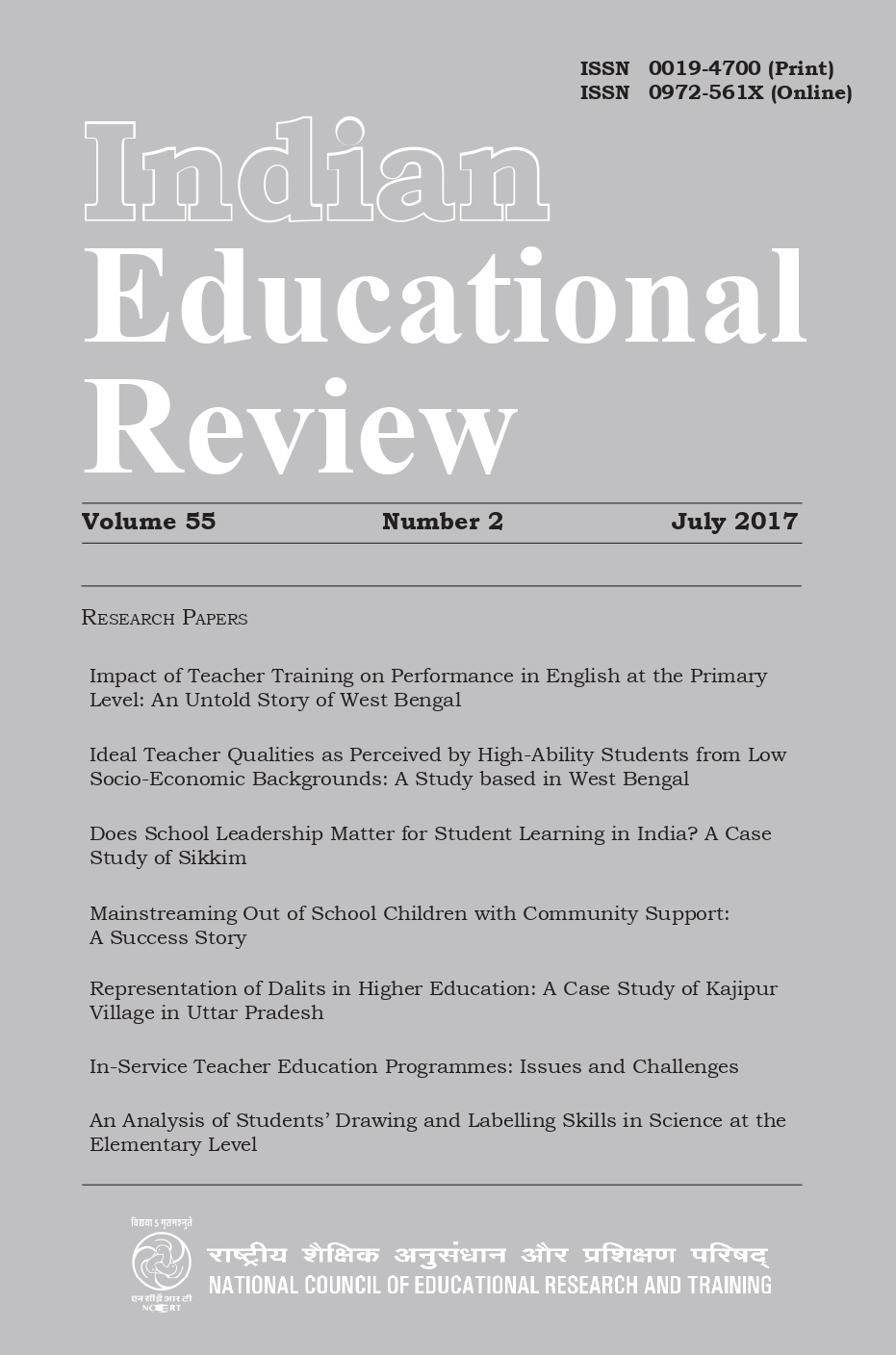A Study on Implementation of Inclusive Education at the Elementary Level in the North-Eastern Region
Published 2017-07-31
Keywords
- Education of Children and Youth with Disabilities,
- Elementary Education
How to Cite
Abstract
Education is the most potent tool for socio-economic mobility and a key instrument for building an equitable and just society. Elementary education provides the foundation for development of education at higher stages. Hence, elementary education needs to be strengthened. The Constitution of India now guarantees eight years of elementary education to each and every child in the country. Elementary schooling consists of five years of primary schooling and three years of upper primary schooling. Primary education motivates a child towards studies and therefore improves his/her interest to firmly proceed forward. Indian government has launched a number of programmes for spreading elementary education in India, including the DPEP of 1994. A new programme launched by the government with regard to improvement of elementary education was SSA in 2001. The programme was launched with an aim to ensure entry, retention and education of children between 6–14 years of age. Inclusive education is an integral component of SSA which promised ‘education for all’ by 2010. Many policies and acts have been legislated to make inclusive education a reality. New policies have been formulated to overcome limitations of previous efforts, such as the Action Plan for Inclusion in Education of Children and Youth with Disabilities (IECYD) and The National Policy for Persons with Disabilities in 2006 which stressed on modifying the existing infrastructure facilities, teaching procedures in order to make it more children friendly.

